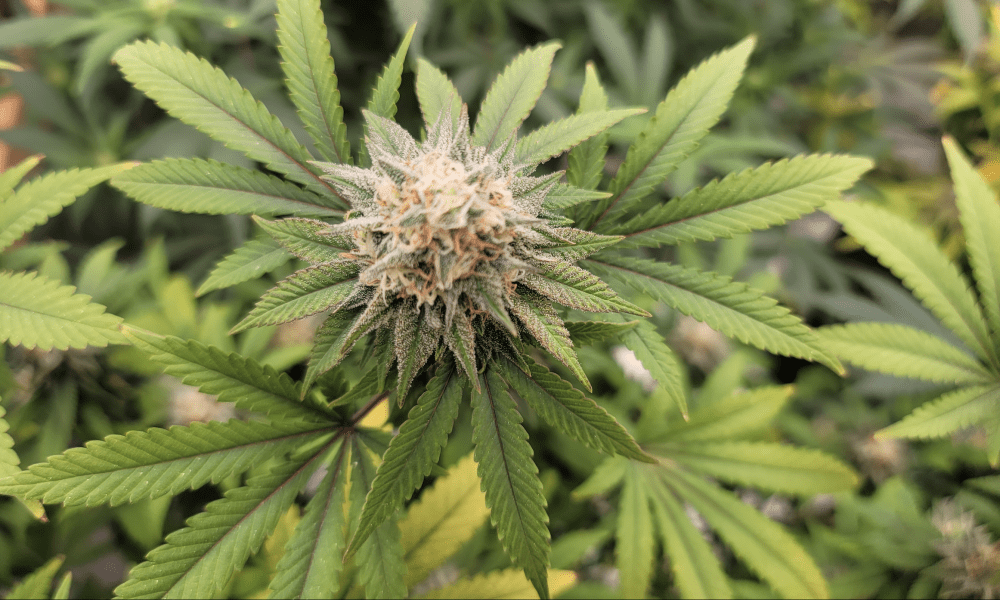California Senators are advancing a measure to halt the recently enacted tax increase on marijuana.
Members of the Senate Revenue And Taxation Committee voted on Wednesday to approve the Assembly measure passed by Assemblymember Matt Haney, (D), which delays the tax increases for five more years. The result was 5-0.
At the beginning of hearings, the sponsor announced that he was in favor of an amendment by the committee that delayed the date that his bill would take effect to October instead of immediately. Last week, the tax increase officially went into effect.
The state announced in late June that, on July 1, the excise tax for cannabis would go up from 15 to 19 percent. Advocates held out hopes that Haney’s bill would become part of a pending budget. It didn’t work out.
Haney stated during the Senate Committee hearing on Wednesday that “AB 564 would provide tax relief for California’s struggling marijuana industry by reversing a 25 percent increase in excise taxes.” “California has been at the heart of America’s cannabis economy and culture—but since voters passed Prop 64, California has not given the legal cannabis industry a chance to grow into its potential.”
He said: “The illegal cannabis industry is always a danger to the legal industry. It is not taxed and isn’t subject to any state or local taxes.” “The legal marijuana industry is in need of a lifeline.”
Haney’s response to an earlier budget measure was passed despite the fact that Gov. Gavin Newsom, a Democrat, supported including a freeze on taxes in the trailer law. Assembly Speaker Robert Rivas, a Democrat, also supported the delay. However Senate Pro Tempore Mike McGuire was reported to have blocked the inclusion of the tax freeze in the trailer bill.
McGuire admitted in a CalMatters statement that the “taxes on California’s overregulated marijuana industry has been a trainwreck for years,” however, he added that any freeze would create a deficit that could impact vital community programs that are funded with cannabis tax dollars.
Haney’s bill passed through the Assembly at the end of last month. The delayed implementation was not to take place before October. The advocates wanted it to be included in a separate budget bill that was recently enacted because the delayed implementation would have taken effect immediately.
Haney’s proposal requires the California Department of Tax and Fee Administration, working in conjunction with the Department of Finance to “adjust” the cannabis excise rate for purchasers of marijuana or cannabis-related products. This would be based on “an additional percentage of retail sales of any cannabis retailer” that is estimated to generate revenue that equals the amount collected by the Department of Finance during the preceding fiscal year.
It is necessary for the department to estimate the revenue collected by the weight-based tax in the fiscal year prior.
According to the legislation, “the cannabis excise rate reduction has the specific purpose of providing immediate tax relief to cannabis industries.” The Legislature may measure whether this is a successful goal based on the increase or decrease in cannabis excise revenue resulting as a result of the reduction of tax rates allowed under this Act.
It also mandates that CDTFA, on or before December 1, 2026 and each subsequent year the California “submit a report to the Legislature…detailing the amount of gain or loss in cannabis excise tax revenues resulting from the cannabis excise tax rate reduction allowed by this act.”
—
MEDCAN24 has been tracking the hundreds of bills relating to cannabis, psychedelics or drug policies that have passed through state legislatures as well as Congress in this past year. Patreon members who pledge at least $25/month gain access to interactive maps, charts and a hearing calendar.
Discover more about the marijuana bills tracker. Become a patron on Patreon and you will have access.
—
Meanwhile, California officials are inviting research proposals for a second round of grants under a program meant to better educate the public on the state’s marijuana law and help policymakers make informed decisions on the issue.
Last month, the Governor’s Office of Business and Economic Development (GO-Biz) announced the recipients of over $52 million in community reinvestment grants to nonprofits and local health departments, also funded by marijuana tax revenue.
That marked the seventh round of cannabis-funded California Community Reinvestment Grants (CalCRG) under the state program.
California legalization has resulted in a new set of grant programs designed to address the negative effects of marijuana prohibition, and foster a robust industry that is well-regulated.
California’s Supreme Court separately delivered a victory for the state’s marijuana program last month, rescinding a lower court ruling in a case that suggested federal prohibition could be used locally to undermine the cannabis market.
The state Supreme Court ruling also came just weeks after California officials unveiled a report on the current status and future of the state’s marijuana market—with independent analysts hired by regulators concluding that the federal prohibition on cannabis that prevents interstate commerce is meaningfully bolstering the illicit market.
The governor did sign a bill in 2022 that would have empowered him to enter into interstate cannabis commerce agreements with other legal states, but that power was incumbent upon federal guidance or an assessment from the state attorney general that sanctioned such activity.
Meanwhile, a California Senate committee recently declined to advance a bipartisan bill that would have created a psilocybin pilot program for military veterans and former first responders.
Mike Latimer provided the photo.





